Memory -
What is it?
Webster's defines memory
as "The mental capacity or faculty of retaining
or recalling facts, events, impressions or previous
experiences." Scientists still do not understand
how memory works witnessed by the numerous confusing
categories and terms, they usually divide it into three
types -immediate, recent and remote- based on time.
The most common cause of memory loss is stress
and anxiety. The second most common cause is depression.
The third most common cause is medical issues. Only
the 10th or 11th on the list would be Alzheimer's disease.
Ninety percent of older adults who complain about memory
loss do not have Alzheimer's disease. Most of them
have depression, stress, anxiety, fatigue, and lack
of sufficient amount of sleep or medical issues.
Dr. Fotuhi |
Children and young adults are often proud
of their memories while as adults we generally complain
about
ours. Achievement in school and the work place is largely
dependent on the ability to memorize facts and social
success is tied to the ability to remember names and
faces. When we reach our forties things change. Did
you ever find yourself looking in the closet but not
knowing what you are looking for only to remember what
it was when you got back to the kitchen? This is a
normal consequence of aging and usually only effects
short-term memory.
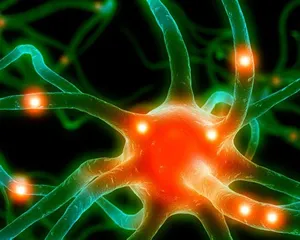
The Tenuous Past:
Memory and the Ways it Fails
" I remember it like it was yesterday!" you
say. But how well do you really remember it? How well do
you remember yesterday? Here's a quick quiz: What time did
you have lunch yesterday? What exactly did you eat? What
did you say? What did the people around you say? If you read
the paper yesterday, name all the stories you read and summarize
them briefly.
Don't remember yesterday as well as you thought?
Don't worry, nobody does. Our memories are often thought
of as recording devices, mechanically noting what has happened
during the day and replaying these events like a tape. In
truth, memory is a function of the brain, which is constantly
in flux, organic, and does not behave like a machine. Your
memory can be affected in many ways by many things, which
can cause you to forget, to change memories around, to repress
memories, and even to invent completely new ones!
This is of no small importance, because our
only evidence that the past occurred comes from our memories.
In what ways, then, can memory fail us?
Did you know there are a bunch of things you’re
probably doing to make your memory worse?
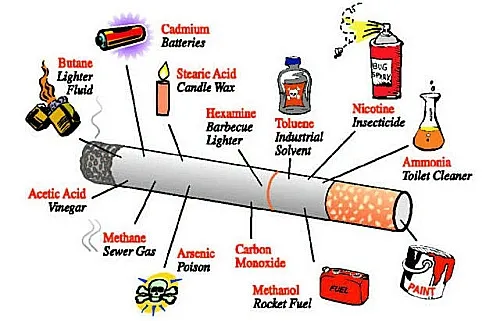
Dr. Daniel Schacter of Harvard University lists "7
Sins of Memory," ways in which our memories fail us.
His list features :
Transience, absentmindedness, blocking, suggestibility, bias, persistence,
and misattribution (5). Most of these sins are things we experience in everyday
life. When something you read last week isn't as clear now as it seemed then,
that's transience. When you forget where you put your book or forget that you
have to be somewhere, that's absentmindedness. Blocking is the "temporary
inaccessibility of stored information," such as a person's name or a word.
Suggestibility and misattribution go together, since memories can incorporate
misinformation and also BE misinformation. Suggestibility is the "incorporation
of misinformation into memory due to leading questions, deception and other
causes," and misinformation consists of 'remembering' something that did
not occur. Persistence is slightly more abnormal, and the inability to get
a thought out of your head that it characterizes is common in post traumatic
stress disorder.
Dana Bakalar
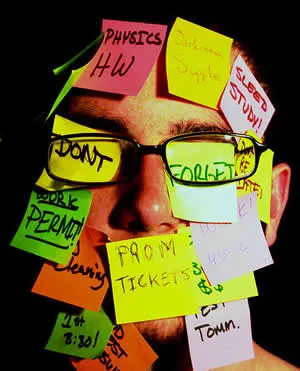
The important thing to consider about the impact
of memory loss on your life is the distinction between
natural lapses in recall and true symptoms of dementia.
Dementia is an umbrella term used to describe various
degradations of brain function, and it bears repeating
that it is not a normal part of ageing.
Glenn Rees is the chief executive of Alzheimer’s
Australia.
“There’s a difference between losing
your car keys and forgetting you’ve got a
car,” he said |

Memory loss probably affects the majority of
us in one way or another. More often than not, it is a momentary
memory lapse; nothing to worry about – it happens to
the best of us. However, when memory lapses begin to become
a regular occurrence, it is wise to dig a little deeper and
seek .
Changing one's diet to include
more nutritious and balanced foods can also help
with diet related problems such as problems with
sleeping. Lack of sleep in itself can cause memory
lapses and cognitive deterioration. A healthier
diet which helps with sleeping problems may therefore
have a knock-on effect and also help to improve
poor memory.
Short term memory loss is initially
the most common complaint associated with mercury
toxicity
Temporary forgetfulness is a
known symptom of hypoglycemia.
A damaged liver cannot remove
toxins from the blood, causing them to accumulate
in the blood and eventually the brain. Once there,
toxins can dull mental functioning and cause
personality changes, coma, or even death. Signs
of toxin buildup in the brain include neglect
of personal appearance, unresponsiveness, forgetfulness,
trouble concentrating, or changes in sleep habits |
Memory can be
affected by a number of factors, some
more sinister than others: it may simply be lack of sleep;
fatigue due to over-work, lack of exercise, or poor diet;
or stress-related. These are all issue about which we
can do something constructive to help us. However, memory
problems can also be the result of deeper-rooted issues
such as brain disease, tumours, or the onset of a brain
cell deteriorating disease such as Alzheimer’s.
Sufferers that have any doubts at all should always seek
medical advice with regards to continued memory loss.
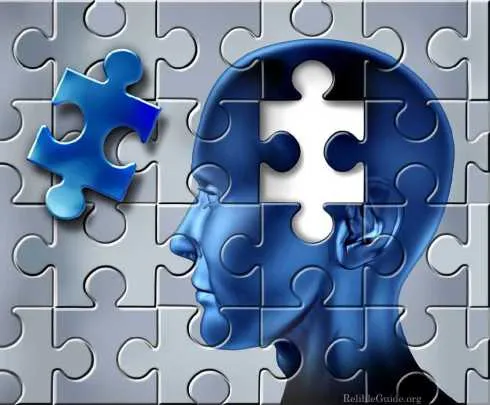
Causes of Memory
Loss
1. Alcoholism
2. Trauma
3. Aging
4. Stress
5. Dementia
6. Psychological disturbances
7. Drug abuse
8. Medications
9. Malnutrition
10. Vitamin deficiencies
11. Sleep disorders
12. Prolonged exposure to toxins
13. Infections
14. Chronic medical conditions.
Short-term memory provides
a small storage space for daily tasks and lists, and is more
likely to be affected with age. Forgetfulness is not a symptom
of a serious problem, unless it becomes debilitating or accompanied
by other symptoms of mental instability such as confusion
or behavioral changes.
There have been several anecdotal
accounts that cranial electrical stimulation (CES)
enhances attention and
the ability to learn new tasks in a normal population,
but only one published investigation confirms that
CES improves attention using the Alpha Stim CES (Madden
and Kirsch, 1987). The purpose of this study was
to corroborate the findings of Madden and Kirsch,
using
more precise measures of attention, such as a Continuous
Performance Test (CPT). A pretest and posttest CPT
was given to two groups using the LISS CES device.
The control group consisted of twenty-one subjects
who received the placebo treatment. The experimental
group of thirty-one subjects received twenty minutes
of CES. Four measures of the CPT show significant
gains in attention: Number of Hits,p=.010 Hit RT
ISI Change,p=.016,
Risk Taking,p=.055; and Attentiveness,p=.054. Based
on subjects who demonstrated improvement by one standard
deviation on two different measures of the CPT, thirty-one
percent of the experimental group improved versus
four percent of the control group. The use of CES
as a method
of increasing attention is a promising are that requires
further investigation. Source |
Memory is also
affected by lack of sleep or by stress and anxiety.
Conversely, if the mind is dull from depression or boredom,
short-term memory becomes rusty from lack of use. Long-term
memory tends to remain stable with age. Childhood memories
remain in the mind better than adult memories.
Memory can be
affected by a number of factors and there
are many possible causes of patches of memory being lost,
some more sinister than others. A high fever, an attack
of epilepsy, severe alcohol intoxication or surgery can
erase memory. A stroke can cause sudden memory loss (accompanied
by other neurological symptoms, such as dizziness, visual
changes, buckling knees or slurred speech.) A passing
loss of short-term memory, or ischemic attack, lasts
only a few minutes and can precede a stroke.
Memory problems
can also be the result of deeper-rooted issues such as
brain disease, tumors, or the onset of a disease such
as Alzheimer’s that causes brain
cell deterioration. Alzheimer's disease and senile dementia
are sources of memory loss in older persons and are associated
with the gradual erosion of the personality. Sufferers
who have any doubts at all should always seek medical
advice with regards to continued memory loss.
"Beth was given anesthesia
when she gave birth to her first baby and later
found that she
had lost
part of her memory. She was forced to give up her
job in an aerospace plant. Years later a friend
gave her
a small cranial electro-stimulation (CES) device
and she began using it.
‘Almost overnight,’ she said, ‘all
my memories started coming back, including everyone’s
telephone extensions at the plant. It was uncanny – all
those old extension numbers of people I hadn’t
thought of in years.’
"This story, told to me by researcher Bob
Beck, Ph.D., provides graphic evidence of a key
fact: We
have electrically-powered brains. Each of the billions
of neurons in our brains is a tiny electrical generator,
as complex as a small computer, firing an electrical
signal that triggers the release of various neurochemicals
and links it with thousands of other neurons."
Mega Brain Power, Michael Hutchinson, 1994 |
Many substances
affect memory, including prescription drugs,
such as sleeping pills and antidepressants, and chronic
alcohol abuse. Nutritional deficiencies should also be
evaluated, especially in older people who do not always
eat well. Problems with memory are often associated with
physical fatigue that causes inattention. Some women
experience memory loss in conjunction with menopause
as a result of hormonal imbalances. Usually short-term
memory loss is a side-effect of too much stress and an
overload of information. There are many illnesses related
to fatigue and poor attention span, including anemia,
underactive thyroid and hyperactivity.

"Double-blind studies were done at the University
of Wisconsin on the Brain Tuners’s capabilities
to overcome drug-withdrawal symptoms and it did the
job. Studies at both Wisconsin and the University of
Louisiana showed it could boost IQ from twenty to thirty
points. Brain Tuners stimulation appears to enhance
neural efficiency," researchers stated.
'Users report the Brain Tuners reduces stress, improves
short and long term memory, helps learning, increases
energy, improves concentration and reduces pain,
anxiety, depression, and sleep requirements."
Research Papers |
High Blood Pressure
When you are under the age of 45 years
and you often forget, you should check your blood pressure.
University of Alabama study found people with high blood
pressure is more likely to experience impaired memory and
thinking than those with normal blood pressure.
82% of participants in one study suffering from an
anxiety disorder reported a significant improvement
in their symptoms after treatment with CES.
- Kirsch D, Gilula MF, Electromedicine: CES in the
Treatment of Anxiety Disorders, Practical Pain Management,
March 2007, pp 40-47 |
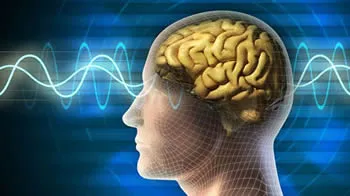
Menopause
When entering a certain age, women often
feel more forgetful. University of California study confirms
that the reduced levels of estrogen at menopause have an
influence on memory. However, memory impairment is not permanent.
“The cells in your body constantly draw energy
from the brain and the Earth's electromagnetic field
in an effort to achieve what is called "magnetic
resonance." Magnetic resonance occurs when the
magnetic frequency in your brain matches a harmonic
of the frequencies of the other organs and body tissues.
This normally occurs for only brief periods during
sleep. During these periods, your body's ability to
heal and repair itself, create enzymes, and boost immunity
is enhanced”.
- Dr. David Williams, Alternatives, |
Chemotherapy
One of the list of unpleasant side effects
of chemotherapy is memory loss. Half of breast cancer patients
following chemotherapy sessions admitted that it is difficult
to remember during treatment. It is estimated, chemotherapy
affects healthy brain cells, and reduces its function. Stanford
University study found that patients who have undergone breast
cancer treatment, have less activity in brain areas responsible
for memory.
Specific electronic frequencies appear to stimulate
the brain to manufacture and rebalance certain brain
neurotransmitter chemicals, such as endorphins, SEROTONIN,
DOPAMINE, NOREPINEPHRINE, and CORTISOL etc. - that
may be involved in many stress related conditions.
This can affect ones moods and emotions as well as
ones cognitive capabilities.
Shealy et al, “Cerebrospinal fluid and plasma
neurochemicals:response to CES”, J. of Neurological
and Orthopedic Medicine and Surgery, |
Asthma Drugs
and Arthritis
Corticosteroids are medicines commonly
used to reduce asthma and arthritis. Long-term use in high
doses, for six months or more, can cause memory problems,
said Stephen Bazire, professor of the University of East
Anglia. Corticosteroids can kill brain cells, and brain
areas particularly the hippocampus shrinks. “Changing steroids
might reduce the risk of memory loss.” Bazire said.
CES substantially reduces muscle tension - as shown
by EMG recordings. There are reports of changes in
heart, blood pressure, galvanic skin responses and
increased peripheral temperature, consistent with positive
autonomic effects, which maintain homeostasis in the
body
Heffernan M., “The effect of a single cranial
electrotherapy stimulation on multiple stress measures”,
The Townsends Letter for Doctors and Patients, |
Depression
This mental condition is associated with
lower levels of brain chemicals like serotonin and norepinephrine
that has the function to convey the message. Thus, depression
is also effect on memory. “Treatment of depression, which
involve talk therapy or not, and successfully, it can also
help alleviate the problem of memory,” said Dr. Gross
Drug
Free Depression protocol
"CES seems to stimulate the vagus nerve - producing
a state of parasympathetic nervous system dominance,
a system which has a general calming effect on the
body. This is certainly consistent with the effects
observed with CES" |
What is CES?
CES stimulates the brain with specific frequency
patterns, which have been successfully used to resolve
depression, insomnia, stress, poor
memory and drug addictions – a
safe, effective alternative to drugs, CES is an FDA-approved
treatment for both situational and chronic anxiety,
depression and insomnia. Over 100 human and 20 animal
studies have demonstrated the effectiveness of CES
in treating these and other disorders, including
substance abuse and pain
Lichtbroun, Raicer & Smith, 2001; Kirsch & Smith, 2000; Thuile & Kirsch,
2000
? CES leaves the user in what psychologists call an alpha state – increased
alpha-wave activity in the brain may also be achieved through such as
meditation, relaxation, chanting, and hypnotherapy. After CES, people
report that their bodies feel lighter, while their thinking is clearer
and more creative.
? CES is NOT "Shock therapy", it is the application to the
head area (using a frequency generator, such as the "Brain Tuner" of
a very weak pulsed electrical current for medical and/or psychological
purposes - The electrical current used in CES is typically less than
1 mA (11,000 times less than the current needed to power a light bulb).
The electromagnetic fields produced by the current used in CES are very
similar to the electrical fields naturally present in the body.
? No negative effects or major contraindications - have been found from
the use of CES to date, either in the U.S. or other parts of the world.
? CES has been an international treatment modality for more than 50 years
- CES for treatment of anxiety began in the Soviet Union during the 1950's,
its primary focus being the treatment of sleep disorders, hence its initial
designation as "Electrosleep."
? CES is presently an under-utilized therapy - because we have been conditioned
to believe that for every symptom or disease there is a solution in a
pill. When it comes to treating anxiety, depression and insomnia, conventional
medicine focuses on chemically manipulating neurotransmitter activity
in the brain. However, the brain and body are also electrical in nature.
Electro-medicine (including CES) is designed primarily to impact the
electrical nature of the body. |
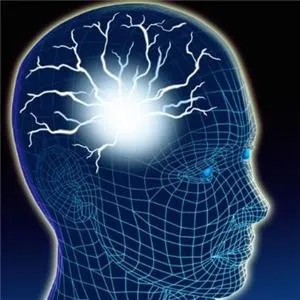
Memory
Alzheimer's Dementia Stress
Overall, then, our memories, which we depend
on to report the past and to form our personalities, are
in fact extremely mutable. They can be affected and changed
by things we think, things we see, diseases we get, and they
can be fabricated out of suggestion or imagination. Since
these flawed memories are all we have, we must form a world
view based on the premise that they are more or less accurate
interpretation of the past; this premise is usually useful
and necessary, but can sometimes cause problems. How much
should we trust eyewitness reports of crimes, for example?
Or the reports of a repressed abuse memory?
Who are we really if our memories of our selves and our interactions with others
are so changeable?
http://serendip.brynmawr.edu/bb/
neuro/neuro04/web1/dbakalar.html
That is a very good question.
Dementia means memory loss plus deficit in one
or more area of cognition,
such as getting lost, confusion of time, or inability
to do the usual hobbies a person may have. There
are many causes for dementia, such as high blood
pressure
causing vascular dementia. The most common cause
of dementia is Alzheimer's disease. So Alzheimer's
is
one of several different types of dementia.
Dr. Fotuhi |
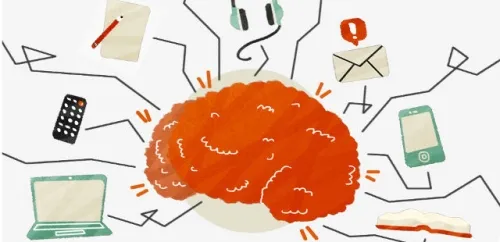
How Memory Works
Doctors think memory works in three steps,
first is registration, sensory memory comes into play here,
we perceive our surroundings and make our observations ready
for storage. Retention is the second component followed by
recall. If sensory memory is considered important it is rehearsed,
repeated, mulled over, and kept in STM for a time. Generally,
we can only juggle about seven facts at a time in STM. When
new facts enter, they displace the old, which are either
lost or, if they have been rehearsed enough, saved in LTM.
Dr. Hyla Cass explains that melatonin might help to prevent loss of memory associated with Alzheimer's
disease because it helps maintain a healthy circadian
rhythm. Lack of sleep or irregular sleep can weaken
the memory and increase feelings of poor concentration
and confusion. Since melatonin levels gradually
decrease as we age, supplementation might reduce
the risk of memory loss. More studies are needed,
but according to Eldr, melatonin also might help
to regulate a sufferer's sleep cycle.
Memory
Preliminary research has suggested that melatonin
may improve memory in certain stressful situations
A recent neurochemical study indicates that beta-endorphin,
serotonin and melatonin increase in plasma and cerebrospinal
fluid after a 20-minute CES cranial stimulation
treatment. (J Neurol OrthopMed Surg (1998) 18:94-97)
A bizarre case was noted of a pineal gland tumor
sending a very young boy into puberty. This was the
first identification
of a sex connection that melatonin would keep one’s
sex life going as one grew older. We believe we can
stimulate melatonin with the CES ( Cranial Electrical
Stimu-lation) device when placed near the pin-eal gland
(see Braverman, pp 49). |
Does Memory
have to Fail?
The good news is - we do become more intelligent
and wise as we age. Wisdom is demonstrated by our increased
ability to make associations or links between past experiences
and new. This function becomes easier as we accumulate more
experiences with time. Does our memory fail or does it just
slow and require more maintenance? This is controversial
subject in medicine. Remember that all of the statements
made concerning memory loss are based on studies that measure
averages of groups of people not individuals. We all know
of an 80+ year old who is as sharp witty and intelligent
as ever. The brain shrinks as we age, some of the shrinkage
is due to cells dying, but cell death is less of a factor
then previously thought. Cell death begins as early as 40
but measurable intellectual slowing does not begin until
age 60 and does not accelerate until age 80. Other cells
take over the dying cell function and cell death alone does
not significantly effect memory. The neuro transmitter acetylcholine
decreases over time and may contribute to age associated
memory impairment.
Brain May Grow New Cells Daily
Salk Institute Study Finds Brains Can Grow
New Cells
Brain nutrient can help maximize memory.
by Ronald M. Lawrence, M.D., Ph.D.
According to a recently completed animal study conducted by the Salk
Institute, it turns out that regular exercise helps an "old brain" build
new brain cells (Van Praag 2002). Just as importantly, researchers
have found that the daily use of powerful brain nutrients can support
the brain by boosting membrane function (Kidd 1998). It's all good
news for aging brains.
The Salk Institute study, published in the
science journal Nature, found that in mice, new
brain cells were generated in the hippocampus,
the area of the brain responsible for learning
and memory. After only
four months, these new brain cells were found
to mature into functional neurons (Van Praag
2002).
The researchers don't know what these new
brain cells actually do, but they hope to someday
replicate the effects in other areas of the
brain. Imagine the implications for neurodegenerative
diseases like Alzheimer's or for diseases such
as stroke that destroy brain cells
(Newswise 2002).
Nutrient to Assist Thinking and Memory
For the present, there is encouraging news
about maintaining brain health, especially through
the use of the naturally occurring compound
phosphatidylserine (PS). PS is a key building
block for brain cells. Specifically, it helps
maintain the integrity and the fluidity of brain
cell membranes, which are a kind of sheath that
has many functions.
Cell membranes protect the cells while simultaneously
letting nutrients in and waste products out,
and their flexibility is crucial for enhancing
swift communication between neurons (Kidd 1998). |
BRAIN CELL
GROWTH AFFECTED BY STRESS
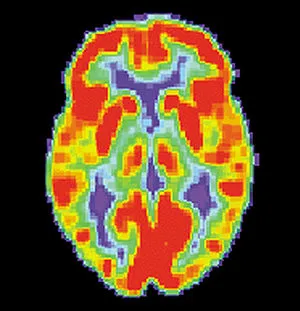
For years, neurobiologists clung to a fundamental truth:
as animals and people reach adulthood, they lose brain cells
and they never grow new ones. There were a couple of exceptions
such as birds and rats, but the thought was that these were
peculiarities of nature and not evidence of a general principle.
Now, in experiments that experts call amazing, that dogma has been overturned
because scientists have found that monkeys are constantly making new brain
cells in the hippocampus, an area of the brain used for forming long-term memories.Moreover,
they report, the production of new cells is squelched when the animals are
under extreme stress.
General Benefits |
- Ability to Focus |
- Lucid Dreaming |
- Deep Relaxation |
- Centering and Calmness |
- Better Sexual Performance |
- Deeper, more Restful Sleep |
- Reduced Nervous Energy |
- Enhanced Creativity |
- Improved Attention Span and Concentration |
- Increased Mental and Physical Energy |
- Reduced Negative Behavior Patterns |
- Short Term Memory Improvement |
Experts say they
fully expect that humans are no different and that they,
too, make new brain cells in adult life. That
raises the glimmer of a possibility of eventually treating
degenerative disorders like Alzheimer's or Parkinsons disease
and injuries such as those resulting from stroke or trauma — by
prompting the brain to grow replacement cells.
Do you agree
with the "use
it or lose it" philosophy for preventing memory
loss, such as playing chess, reading, and doing puzzles?
Dr.
Fotuhi: "The answer is absolutely yes. Use it or
lose it really applies to your brain as much
as it applies
to your muscles. Several studies in the past two
or three years have confirmed this notion. People
who do more crossword puzzles, play chess, or enjoy
activities that require thinking, are less likely
to develop Alzheimer's disease. " |
It also means that neurobiologists must rethink basic notions
of the way the brain changes with learning or life experiences.

Dr. Elizabeth Gould of Princeton University, Dr. Bruce S.
McEwen of Rockefeller University in Ncw York and their colleagues
investigated using marmoset monkeys, adding two tracer chemicals
to the animals' brains: one that labeled cells that were
dividing — the process that gives rise to new cells
and one that labeled mature nerve cells. Cells that were
born during adult life and that grew into mature brain cells
would be marked by both chemicals.
With this method, the researchers looked for, and found,
new cells in the animals' hippocampuses.
Dr. Gould estimated that thousands of such cells were being
made each day. She said she suspected other cells were dying
to make room for new ones, but her study did not count numbers
of dying cells.
CES normalizes the body’s
electrical fields that are disturbed with injury
or pain - This has been
measured on EEG (brain wave tracing). For example,
people with moderate to severe pain from osteoarthritis
(degenerative joint disease) are found to have ABNORMAL
brain wave activity. After 5 minutes of CES treatment,
brain waves were virtually normal, and pain was reduced
by more than 50%. It has been found that individuals
whose brain waves improved the most had the greatest
pain relief.
Heffernan M, “The Effects of variable microcurrents
on EEG spectrum ans pain control”, Canadian
J. of Clin. Medicine, |
The hippocampus was particularly intriguing for another
reason, Dr. Gould said. Earlier research had shown that when
people are under stress, the hippocampus shrinks in size.
For example, people with tumors that pour out the stress
hormone cortisol have a diminished hippocampus. So do people
with recurrent depression and people with posttraumatic stress
disorder, Dr. Gould said.
It might be possible, she reasoned, that monkeys under stress
might decrease their production of new brain cells in the
hippocampus, making that area of the brain shrink.

To test the hypothesis, Dr. Gould and her colleagues stressed
monkeys by putting a male monkey who had always lived alone
into a small cage where another male was living. The intruder
was terrified and cowered in the cage, with a rapidly beating
heart. When Dr. Gould and her colleagues examined the brains
of the frightened monkeys, they found that after just one
hour of this stress, the monkeys were making substantially
fewer new I brain cells.
The study is being published in The Proceedings of the National
Academy of Sciences.
As so often happens in science, the seeds for the new view
of brain regeneration were sown decades ago, but were largely
ignored.
In the 1960s, Dr. Joseph Altman, a Purdue University scientist
who is now retired, reported that rats make new brain cells
throughout their lives. The cells were in the hippocampus
and in the olfactory bulb, an area used to sense smells,
he noted. "No one paid attention,"Dr. Gould said.
Twenty years later, Dr. Fernando Nottebohm, who is head
of the laboratory of animal behavior at Rockefeller University,
asked whether brain cells were being born in adult birds.
Bird brains, he noticed, grow and shrink with the seasons,
swelling when the animals need to learn new songs to attract
mates and shrinking after they had bred. He wondered whether
the swelling brains during breeding seasons could represent
the actual growth of new brain cells. At the time, Dr. Nottebohm
said, he knew nothing of Dr. Altman's work.
W ith CES(as in the BTPro)
Sleep patterns should begin to normalize within
the first
day
or two,
with
less and shorter periods of
awakening during the night, faster onset of sleep
after going to bed, and a greater feeling of being
rested
upon awakening the following morning. Depression
and mood swings become less, as does irrational
anger,
irritability, and poor impulse control. By the second
week, cognitive processing is visibly enhanced. Mental
confusion due to stress begins to subside as the
ability to focus and concentrate on work becomes
easier and
more efficient. The ability to recall information
and accelerate learning also begins to return to
normal
pre-stress levels as concentration and memory improve. Source |
In a series of
painstaking experiments, Dr. Nottebohm showed that birds
constantly make new brain cells and that the new
cells replace old ones that die. "There was a program
of constant brain rejuvenation,"Dr. Nottebohm said.
In 1984, Dr. Nottebohm organized a meeting in New York that
he called Hope for a New Neurology A colleague at Rockefeller,
Dr. Arturo Alvarez-Buylla recalled that Dr. Nottebohm "was
pushing the idea that in the adult brain, there is no impediment
to the formation of new neurons." But, Dr. Alvarez-Buylla
added, "people thought that was bordering on fantasy."Nonetheless,
some researchers persisted, showing in rats and mice and
in tree shrews that new brain cells are born throughout life,
at least in the hippocampus and olfactory bulb.

Those suffering from severe anxiety and extremes
of compulsive or addictive behavior may find it necessary
to use it more frequently, perhaps several times daily.
When symptoms of depression or anxiety have lessened
or disappeared, it is still important to have access
to the unit as a tool for relapse prevention on an
as-needed basis. It is helpful to work in close conjunction
with your physician/healthcare professional. |
Dr. Alvarez-Buylla,
for example, recently found that adult mice make 5,000
to 10,000 new brain cells each hour. The
brain cells that end up in the olfactory bulb are born
on the walls of the ventricles, cavities in the brain that
are
called with cerebrospinal fluid. They travel in "little
trains of cells" to their destination, he said. Those
that end up in the hippocampus are born there. But many
scientists believed that monkeys and humans could not be
growing new
brain cells -- that in order to store memories for a lifetime,
you need a stable brain.
Dr. Gould said. "If cells are constantly dying and
new ones being produced, how would that be possible?" Dr.
Gould, however, was persuaded by the findings on other species.
''Why not monkeys?" she asked. Others also began seeking
and finding brain regeneration in monkeys, but Dr. Gould
is the first to publish her findings.
Do we lose brain cells as we get older? Scientists know
that most of us lose brain mass as we get older. CT scans
of older adults often show some degree of cerebral atrophy
- brain shrinkage. There is also research that suggests that
we lose connections between brain cells as we age. My father
is beginning to have difficulty remembering names. They usually
come to him eventually, but they do not seem to be as easily
retrieved as in the past. The name is still stored, it's
just not easily accessed.

How often have you asked yourself
the question:
" Why can't I remember everything I read?"
The problem with poor memory is not confined
to reading. It is more generalized in that we also have difficulty
remembering: names of people dates and times telephone numbers
codes, passwords events and occasions business facts and
figures jokes
etc, etc.
It is not ONLY remembering what you have now
read, but remembering what you read yesterday, last week,
a month ago, a year ago, and so on.
The problem is not because you are running
out of brain storage space. Even when we reach old age, we
still have plenty of unused brain capacity available.
The problem is not TIME. Information simply
cannot "leak" out of our ears over time. Why can
we remember vivid details of childhood yet the details of
last week's newspaper are vague? We remember perfect details
of scenes that only happened once, yet information drummed
into the brain just simply will not "stick".
So, what Perhaps
is the cause of the memory problem?
Every computer's hard drive is organized. The
aim of loading information onto the hard drive is not to
leave it there, untouched and inaccessible, but to use it.
Much thought was put into how the information will be filed
away so that when it is needed it can be accessed quickly
and easily. Your computer has a filing system to access all
information placed in any possible location.
The majority of psychological studies involving
tDCS focus on the expansion of knowledge about a certain
region of the brain or a certain psychological phenomenon.
For example, much work is done on the ability and specifics
of working memory.[12] Many of these studies stimulate
a particular region of the brain and then observe the
effects of the stimulation in some type of cognitive
task.
Recently, there have been studies that show
that transcranial direct current stimulation aids
in the working memory of cognitive tasks[13] .
More so, the United States Air Force has shown
interest in this area of research as Andy McKinley[14]
has showed that tDCS can aid in training and teaching
cutting down time needed to train pilots. As accuracy
was sustained in trials lasting up to 40 minutes
compared to
the norm of 20 minutes |
Would you like
Ability to Focus
Deep Relaxation
Centering and Calmness
Reduced Nervous Energy
Deeper, more Restful Sleep
Better Sexual Performance
Improved Mental Abilities
Short Term Memory Improvement
Increased Mental and Physical Energy
Reduced Negative Behavior Patterns
Improved Attention Span and Concentration
Note: the possible range of benefits listed
above are based upon years of experience working with CES.
Because there are currently no published research studies
involving the BTsystems individual results will vary
and must be considered personal and subjective. Typically,
individuals will report a range of improvements - from very
substantial - to very little.

21st Century
Medicine & Learning
This response submitted by Ronald B. Keys,
JD, PhD .
Slow learners and, or, those with impaired
nervous system development may have their brains and nervous
system jumpstarted. Little did we know back in the 1950s
when the movie, Forbidden Planet, with Leslie Nielson, Ann
Francis and Walter Pidgeon, that the Krell technology to
stimulate brain growth, with a form of cranial electrical
stimulation, might be in use in the 21st century.
currents.
| Beth was given anesthesia when she gave birth
to her first baby and later found that she had lost
part of her memory. She was forced to give up her
job in an aerospace plant. Years later a friend gave
her a small cranial electrostimulation (CES) device
and she began using it. 'Almost overnight,' she said,
'all my memories started coming back, including everyone’s
telephone extensions at the plant. It was uncanny—all
these old extension numbers of people I hadn’t
thought of in years.' This story, told to me by researcher
Bob Beck, Ph.D., provides graphic evidence of a key
fact: We have electric–powered brains. Each
of the billions of neurons in our brains is a tiny
electrical generator, as complex as a small computer,
firing an electrical signal that triggers the release
of various neurochemicals and links it with thousands
of other neurons. |
Cranial electrical stimulation (CES) may improve
memory, attention and focus; important studies are emerging
on the uses of mild electrical current to enhance cognition
and aspects of intelligence.
THE BT Plus The most advanced CES
unit ever produced
While inducing replenishment of general deficiency
states through direct oral supplementation, particularly
necessary substrates may be electroporated into brain and
nervous tissue via electroporation through cranial electrical
nerve stimulation, via an electrical current. This is the
equivalent, by analogy, to putting the plug of a toaster
into an electric socket in order to toast the bread.
Now fortunately they had spent a great deal
of money in absolutely and totally documenting
the effects of this little device. They found that
it reversed Korscoff psychosis (short term memory
loss) in three to five days with chronic alcoholics.
This work was done at the University of Wisconsin
Medical School, the Louisiana Medical College and
at the University of Texas. Now any of you who’ve
dealt with alcoholism know that it normally takes
eight years for the short-term memory to be restored—eight
years of total abstinence. The short-term memory
profile of an alcoholic absolutely pinpoints the
amount of degeneration. One of the tests is the
maze test, where you have to go through a maze
without lifting the pencil from the paper. The
other is the beta section of the test where you
have to look at words on one page, then the page
is taken away and you have to remember it on subsequent
pages. An alcoholic will usually show a profile
of almost total inability to pass these two facets.
In all of their subjects, I don’t like
to say all, it’s rather spooky, 99% of
them—they were able … where they
had a baseline of tests … for example,
where the person had been to college, had taken
this same or a similar test and had become an
alcoholic for 15 years … where they had
access to the original records, the short-term
memory was totally restored in five days of using
this little box 40 minutes a day. Now this is
wild and wonderful. All of this emerged during
some of the research. I spent quite a bit of
time in the bio-Ed library of UCLA, some time
at the Marris library, USC County. |
For those of you that still think this
is voodoo medicine, do a google search for electroporation,
electropharmacology and cell biomembrane transport. Also
do a PUB MED search for Saul Liss, PhD, to pull up actual
abstracts.
The brain is a highly pliant, flexible
organ that has greater capacity than we ever imagined.....
CES is a simple treatment employing an electronic
stimulation through clip-on electrodes that attach to the
earlobes. Current flow is user controlled so that the most
a user need experience during the process is a tingling sensation.
Its most immediate impact is reduction of anxiety. For most
people, anxiety reduction is experienced in the course of
treatment, After a CES session you are left feeling both
alert and relaxed . Psychologists call this an "alpha
state". The effect differs from pharmaceutical treatments
in that people report feeling that their bodies are lighter
and more relaxed and their mind more alert and clear. The
results are cumulative and often lasting.
A Little Wisdom Raising your vibration is the only
effective way to live the life you truly want to live.
While you
are radiating
a low vibration or frequency your life will never
really be in harmony and you will constantly live with
an
inner feeling of discontent and.,.>>>More
Here |
In the Book" In thePalaces of Memory" they
suggest 5hz as being the optimum learning frequency.
Even as you read these words, a tiny portion of your brain
is physically changing. New connections are being sprouted
-- a circuit that will create a stab of recognition if
you encounter the words again... Read: In the Palaces of
Memory
Using the BTPro-system requires no special effort,
training or discipline. Most individuals describe
the experience as being one of focused deep relaxation,
even when high emotional tension has been present.
Following the normal 2 to 3 week application routine,
many individuals experience significant positive
changes in their lives and in their relationships
with others. Many users experience a more positive,
energetic outlook, better mental clarity and feelings
of improved self-esteem. The many daily challenges
of life seem easier to handle and negative reaction
to environmental stress and tension are diminished.
Many individuals have reported that previous negative
habits and behavior patterns gradually diminish with
time.
A 386% increase in attention span test results after
just 20 minutes of a single CES treatment in healthy
volunteers - Southworth S, A Study of the Effects
of Cranial Electrical Stimulation on Attention and
Concentration, Integrative Physiological and Behavioral
Science, 1999, Vol 34:1, 43-53.
CES has Few recorded Side Effects
Headache, skin irritation or vertigo, occurred
in less than 1% of subjects and were temporary
In contrast, side effects and addiction of medicines
are not uncommon - Anti-anxiety drugs often leave
the patient in a stupor. With 50 years of use, hundreds
of research experiments, and hundreds of thousands
of users, CES has been demonstrated to be 100% safe.
You don't have to be "forgetfull" or "losing
it" to realize the benefits of CES - Using CES
in stressful situations, perhaps for as little as
10 minutes, can help curb anxiety and serve as a
reminder that one needs to be oneself in a different
way.
CES quiets the mind.
CES is especially helpful in preparing for
examinations or as an accelerated learning tool - such as
when memorizing blocks of material.
For the athlete readying for competition - it helps
create a state of relaxed awareness helping them
prepare for maximum performance.
Many use CES to assist
in creative work |
The Ultimate Pocket CES system
BT Pro
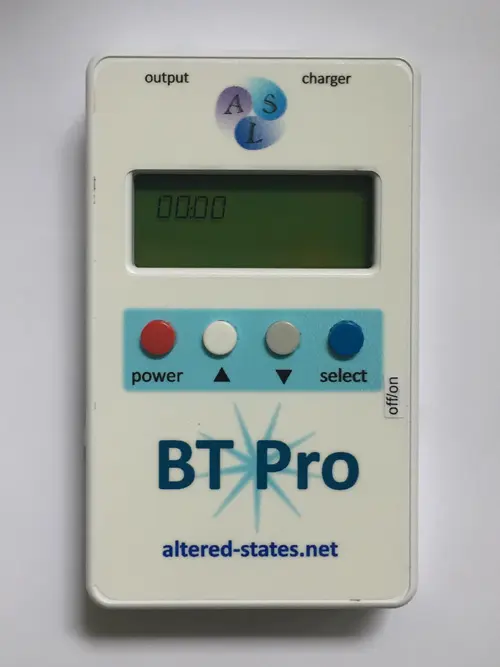
|
RRP $NZ799.95
Now you can use delayed payments click here
|
|
References:
Van Dyke, Halpern, Busby, 'Space Biomagnetics' Space Life Sciences (1968).
Basset, Pawluch, NY Acad of Science (1974); Gross, Lawrence, FEd Proc (1961);
Kolin, Brill, Broberg, Biol & Med (1959); Degen, Vracdelo (1971); Freeman,
Magnetism in Medicine - Journal of Appl Physics (1960). |

